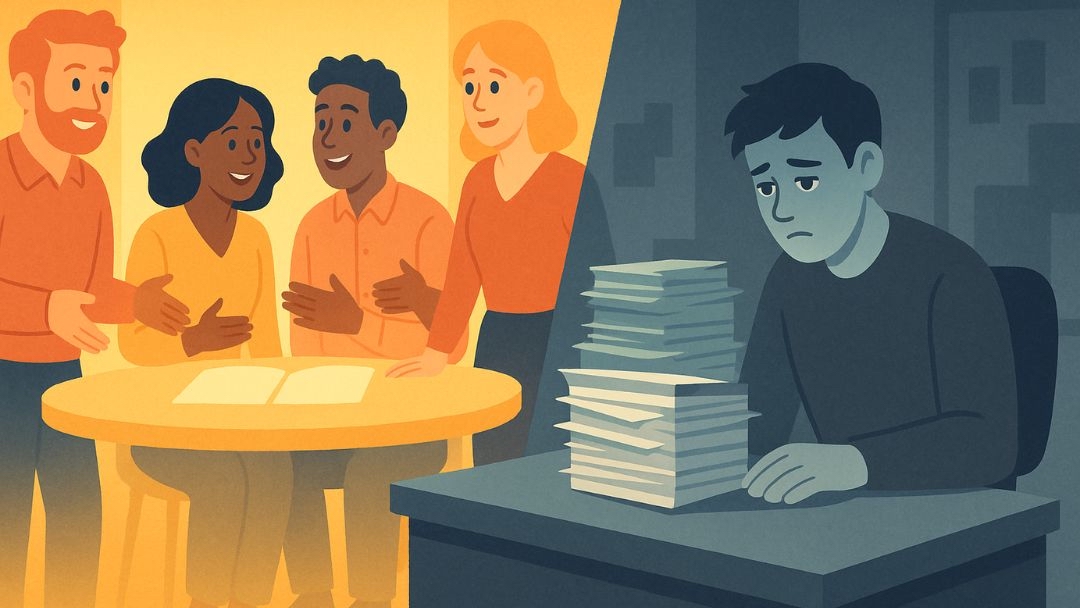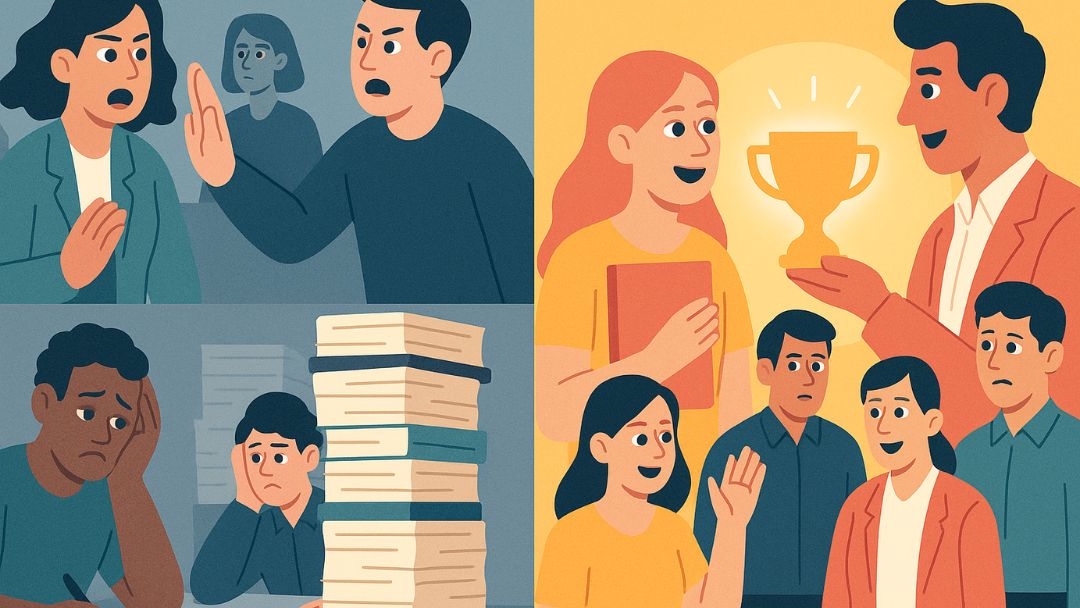Unfair Treatment in the Workplace: How to Recognize the Signs and What to Do
Unfair treatment in the workplace isn’t always obvious. From being left out of conversations to facing discrimination or harassment, it often shows up in small ways that add up. Learn 11 signs to watch for, why it matters, and the steps you can take to protect yourself and your career.


Back
8 mins read
I first experienced unfair treatment at work during my placement as a clinical psychology intern. My supervisor was a highly respected professional, widely regarded as one of the leading clinical psychologists in the country. As a young woman myself, I was eager to learn from another woman who had built such an impressive career.
But the excitement didn’t last long.
It quickly became clear that male and female trainees were not treated equally. The men were always given seats in the front row, while the women were left on the sidelines. Small as it might sound, that kind of unequal treatment added up fast — and it created a long list of frustrations rooted in gender discrimination.
The unfairness was obvious, and morale among the female trainees sank. Yet none of us felt safe speaking up. And I know we weren’t alone.
Experiences like this happen in all kinds of workplaces, in ways both big and small.
Maybe that’s why you’re here — because something in your own workplace doesn’t feel right, and you’re wondering if what you’re experiencing “counts” as unfair treatment.
Unfair Treatment at Work: What It Really Means
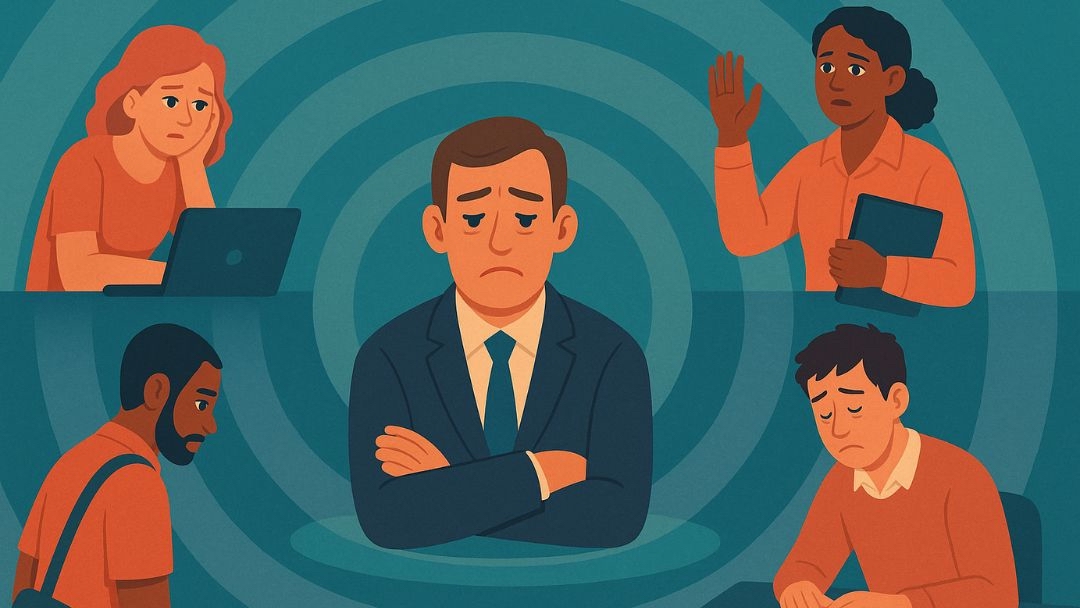
Unfair treatment happens when fairness in the workplace breaks down. At its most clear-cut, it involves harassment or discrimination based on protected characteristics under U.S. law.
Federal laws — including the Civil Rights Act — enforced by the Equal Employment Opportunity Commission (EEOC), prohibit unfair treatment tied to age, race, religion, national origin, gender identity, sexual orientation, disability, or medical condition. Examples include discrimination, resisting sexual advances, or other forms of harassment that interfere with your ability to work.
However, legal violations are only part of the picture.
A hostile work environment is a specific legal term, while a toxic work environment describes a culture where favoritism, exclusion, or bias may thrive even if laws aren’t technically broken. In other words, unfair treatment doesn’t always show up in dramatic ways. Sometimes it builds quietly through patterns like being left out of key conversations or consistently overlooked for recognition.
And it’s far from rare. According to the SHRM Global Culture Research Report 2024, 54% of U.S. workers who consider quitting say unfair treatment is the reason.
That’s why it’s important to recognize not just the extreme cases, but also the everyday patterns that can quietly chip away at morale.
11 Signs of Unfair Treatment in the Workplace
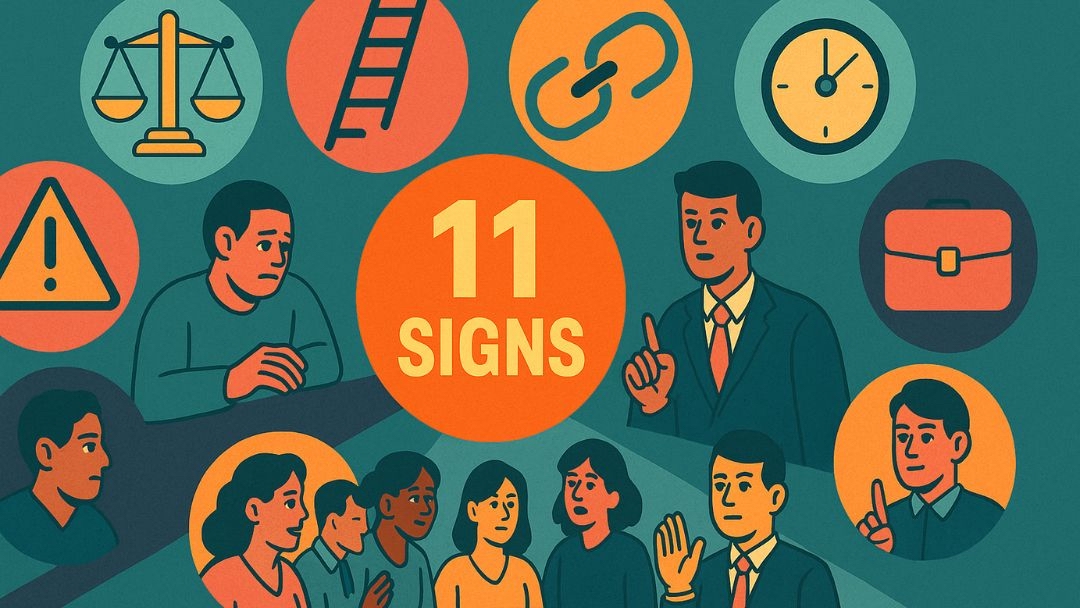
Unfair treatment doesn’t always look like a major scandal. More often, it shows up in the everyday moments that make you feel left out, undervalued, or singled out in ways others aren’t. You might brush these off at first, but over time, the pattern becomes impossible to ignore.
To help you recognize it, here are eleven common signs of unfair treatment at work. As you read through them, think about your own experiences. If even one of these sounds familiar, it could point to something more serious than an occasional frustration.
1. Communication Lags
Unfair treatment at work can look like being silenced or excluded from important conversations.
Are you talked over, ignored, or excluded from conversations where key decisions are discussed? This can happen in ways that feel small but sting — like a manager consistently cutting you off in meetings or leaving your name off important email chains. For example, imagine presenting an idea during a team meeting only to have it brushed aside, then later hearing the same idea praised when voiced by someone else. Over time, these patterns don’t just hurt your confidence — they also keep you out of the loop on decisions that affect your work.
2. Mismatched Workload
Unfair treatment can show up when you’re consistently expected to carry more work than others.
Do you frequently find yourself being handed over more work than your fellow team members? Maybe you’re the one always asked to stay late to finish reports, or you’re regularly covering for colleagues who miss deadlines while your own efforts go unnoticed. Over time, this creates resentment and burnout — especially if the heavier load isn’t matched with recognition, support, or fair compensation.
3. Unequal Recognition
Unfair treatment can mean having your contributions overlooked while others get the credit.
Are your achievements overlooked more frequently than those of others? Picture working hard on a project, only to see your manager praise a teammate who contributed far less, or watching your ideas get implemented without your name ever being mentioned. When recognition is consistently uneven, it doesn’t just feel discouraging — it signals to others that your work is less valuable, which can limit future opportunities.
4. Hidden Opportunities
Workplace mistreatment can include being denied access to growth or advancement opportunities.
Are you kept from opting for opportunities that can facilitate professional growth? This could look like being left off the list for training programs, not being told about internal job postings, or seeing leadership roles given to less-qualified colleagues without fair consideration. Over time, being shut out of these chances doesn’t just slow your career; it creates a workplace culture where favoritism, not merit, decides who gets ahead.
5. Unbalanced Resources
Unfair workplace dynamics can show up when some employees are set up for success while others are left struggling.
Do other employees seem to get better information, tools, feedback, or support than you? Maybe your teammates receive detailed guidance from the boss while you’re left guessing, or they get access to updated software while you’re stuck with outdated systems. Over time, these differences create an uneven playing field, where your performance is judged against people who were set up to succeed from the start.
6. Specified Micromanagement
Workplace mistreatment can occur when every task you do is controlled or second-guessed by others.
Are all your tasks managed closely by others to ensure perfection? Maybe your manager rewrites every email before it’s sent, insists on being copied on the smallest updates, or won’t let you make even routine decisions without approval. Over time, this level of control doesn’t just slow your work — it signals a lack of trust that can chip away at both confidence and job satisfaction.
7. Delayed Growth
Workplace inequality is clear when promotions, raises, or career advancement aren’t given fairly.
Have your efforts gone unrewarded while others with similar results are recognized? For instance, you might consistently meet or exceed your targets but watch less-qualified colleagues get promoted ahead of you, or discover that someone in the same role is earning more despite similar results. When growth opportunities are withheld without reason, it sends the message that effort and achievement don’t matter — favoritism does.
8. Wrongful Termination
Being let go without a valid reason is one of the clearest signs of workplace mistreatment.
Have you been terminated from your position without any legitimate reason? This could mean being fired suddenly without documented performance issues or being dismissed after raising concerns about unfair practices. Sometimes employers will disguise it as a “restructuring,” while other employees in similar roles remain untouched. Losing your job under these circumstances doesn’t just disrupt your career — it can also be a violation of your legal rights.
9. Discrimination
Workplace discrimination happens when employees are treated unfairly because of age, race, gender, religion, or other protected characteristics.
Do you ever feel singled out or treated differently in ways that have nothing to do with your actual performance? Maybe promotions seem to skip over people of a certain age group, or comments about gender or cultural background are brushed off as “jokes.” Over time, these patterns don’t just affect morale — they can create a hostile environment that undermines your sense of belonging at work.
10. Abuse
Workplace abuse includes intimidation, bullying, or hostility that goes beyond criticism and crosses into harmful behavior.
Do you find yourself dreading interactions with a boss or coworker because of how they treat you? Maybe it’s constant criticism delivered harshly, being yelled at in front of others, or subtle forms of bullying like exclusion and ridicule. Over time, this kind of abuse chips away at your confidence, self-worth, and overall mental health, creating a toxic environment that’s difficult to endure.
11. Sexual Harassment
Sexual harassment at work involves repeated unwanted advances — verbal, physical, or sexual — that create an uncomfortable or hostile environment.
Do you ever feel unsafe or uneasy around certain coworkers or supervisors because of how they behave toward you? This could look like inappropriate jokes, unwanted comments about your appearance, or pressure to engage in situations that cross professional boundaries. Beyond the discomfort, harassment erodes trust and can leave you questioning whether your workplace is truly a safe or supportive environment.
Noticing even one of these patterns is reason enough to take a closer look. Recognizing them is the first step toward protecting yourself at work.
Why Addressing Unfair Treatment at Work Matters
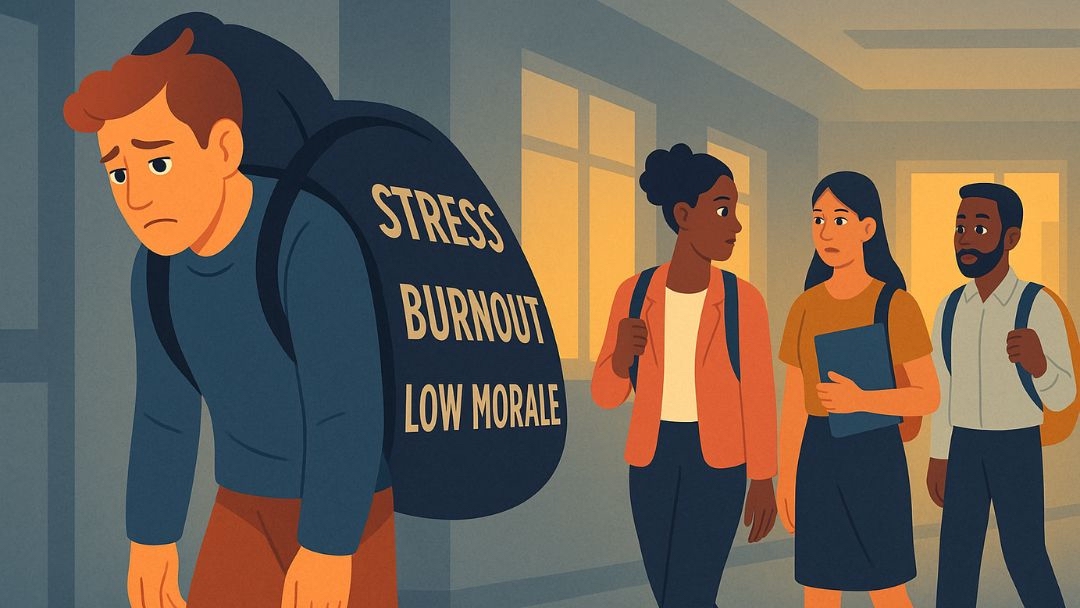
If you’re dealing with unfair treatment at work, it doesn’t just stay at the office. Over time, it seeps into your mental health, your energy, and even the way you see yourself. Many people describe feeling constantly on edge, second-guessing their abilities, or carrying a level of stress that never seems to let up.
This kind of strain is one of the fastest paths to burnout. When you’re undervalued, excluded, or treated unequally, your motivation drains, making it harder to stay engaged in your job duties. What once felt like meaningful work can start to feel exhausting or pointless.
The effects don’t stop there. Unfair treatment often spreads negativity across a whole team, damaging trust in leadership and lowering morale. And when concerns are ignored instead of being met with reasonable accommodations, the pressure only grows. Employees may disengage through silent quitting or walk away entirely, and organizations risk not only losing good people but also facing the kind of complaints that can escalate into a discrimination lawsuit.
The bottom line? Speaking up and addressing unfair treatment isn’t just about fixing one situation. It’s about protecting your workplace well-being, preventing burnout, and making sure you’re in a work environment where you can actually thrive.
What You Can Do if You’re Being Treated Unfairly at Work
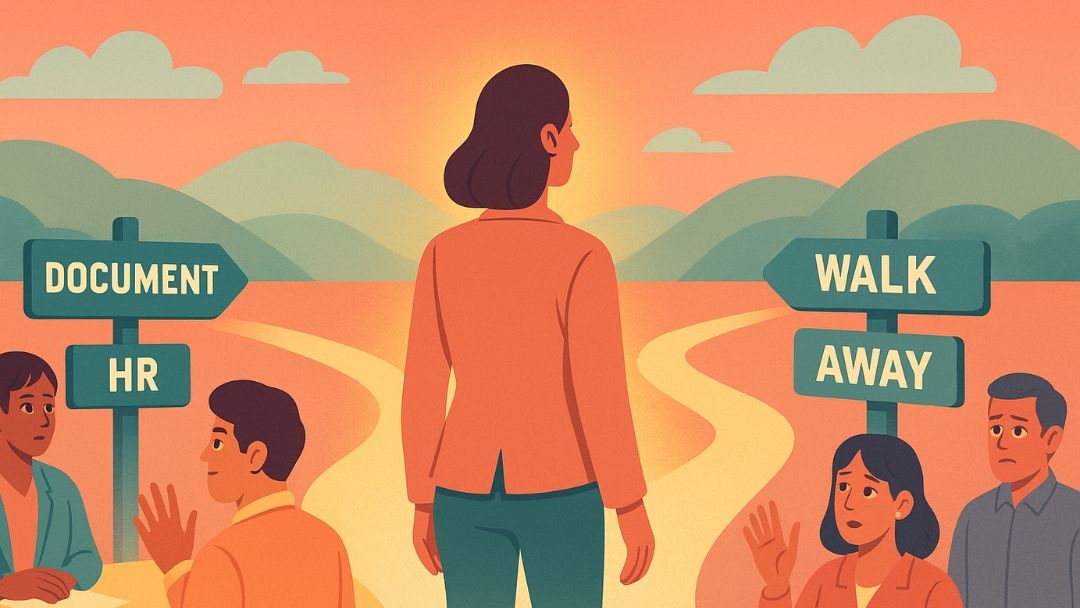
If you’re dealing with unfair treatment, it can feel overwhelming, but you’re not powerless. Here are steps you can take to protect yourself and begin to regain control.
Stay Educated and Informed
The more you understand what unfair treatment looks like — from subtle exclusion to serious workplace harassment — the easier it is to recognize when it’s happening to you. Knowing the differences gives you clarity and confidence in how to respond.
Keep it Professional
Unfair treatment can trigger strong emotions, but handling it calmly and professionally strengthens your position. Avoid venting on public channels or social media. Instead, aim to address concerns directly and tactfully so your credibility stays intact.
Document What Happens
Keep a written record of incidents as they occur. Save emails, texts, memos, and notes from conversations. This documentation can become crucial if you decide to file a formal complaint or need to involve an attorney later on.
Try an Informal Resolution
Sometimes issues stem from miscommunication rather than malice. If you feel safe doing so, start with a direct but respectful conversation with the person involved. This can resolve misunderstandings before they escalate.
Engage the Human Resources Department
If direct resolution doesn’t work, bring your concerns to human resources. Ask about your organization’s policies and how they apply to your situation. Remember, HR is there to support employees but ultimately works to protect the company as well. If you feel your concerns are dismissed, you may need outside support.
Consult an Employment Attorney
If HR doesn’t resolve the problem — or if their response creates more unfairness — consider speaking with an employment attorney. Legal counsel can explain your rights under federal and state laws, advise on next steps, and help you prepare for possible legal action if necessary.
Prioritize Your Mental Health
Dealing with unfair treatment is emotionally draining, whether or not you pursue legal steps. Build a support system of trusted friends, family, or even a therapist who can help you process what you’re going through. Protecting your mental health is just as important as protecting your rights.
Know When to Walk Away
Sometimes, despite every effort, the environment doesn’t change. Leaving may be the best option if the cost to your health and well-being is too high. Everyone deserves to work in a place where they feel valued and respected.
Taking the Next Step Toward Fairness at Work
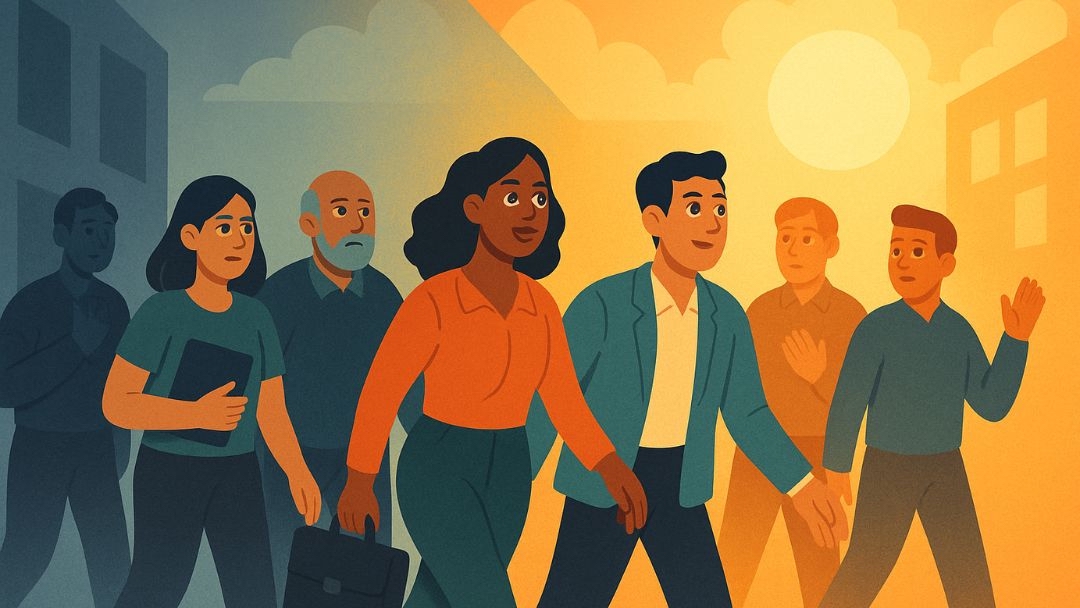
Staying quiet about unfair treatment rarely makes things better. I learned that during my clinical placement, where being talked over, overlooked, or passed up for opportunities didn’t seem serious at the time — just something to tolerate. In hindsight, speaking up could have made a real difference.
Looking back, what seemed small at first was actually chipping away at my motivation and sense of worth. That’s how unfair treatment often works — it builds quietly until the stress becomes impossible to ignore, sometimes even leading to burnout.
The important thing is this: once you recognize the signs, you can choose how to respond. Whether it’s starting a conversation, documenting incidents, or seeking support, every step you take helps protect your well-being and creates a healthier work environment.
If you’re unsure how much this stress is already affecting you, take our burnout test to check in with yourself and take the next step toward protecting both your career and your peace of mind.


Return to Blog
